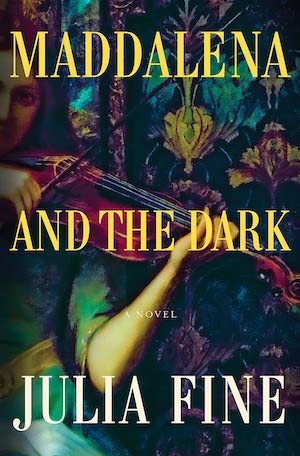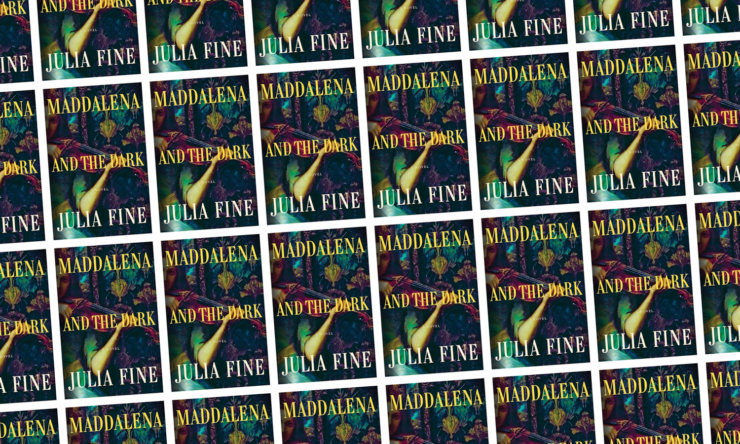It is the time of Vivaldi. No longer at its apex of power, Venice seems more than ever to be sinking into the sea. Torn between the modern world and the medieval, religious order and secular desire, old money and new, the inhabitants of the floating city live their lives vying for whatever power the water might afford them.
Maddalena is no exception. A young girl from an aristocratic family embroiled in scandal, she faces marriage or extinction. And so, at the Feast of the Ascension, as the Doge marries the city to the sea, she looks to the sea as a source of control. She wishes on the mysterious force she sees in its dark and murky waves, for the thing she desires most—not sweeping social change, not even sovereignty over her own body, but to be seen and recognized by someone, anyone. When she enters the prestigious Ospedale della Pietà conservatory and meets the young violin prodigy Louisa, she knows immediately that she’s been granted her wish.
Julia Fine’s newest novel, Maddalena and the Dark, is a dark, romantic gothic whose prose befits the Baroque music that hovers at its edges. It follows Maddalena and Louisa as their bond deepens and they stack wish upon wish to the sea and its mysterious messenger, a handsome young gondolier. Louisa, like most of the girls at the Pietà, is a faceless, nameless orphan, banking on her talent to gain some semblance of security. With Maddalena’s friendship, her hopes seem more achievable than ever—Vivaldi has taken notice of her music, and her friend’s privilege has allowed her to step into the outside world for the very first time. But when Louisa’s desires take her away from Maddalena’s orbit, the latter is overcome with jealousy and grief, and her wishes begin to sour. She may have gotten the intimacy she asked for, but she’s been denied full domination. And Louisa may have had the power of the sea on her side once, but she is as much a faceless and nameless orphan girl as she was when she started.
Buy the Book


Maddalena and the Dark
The power struggle between Maddalena and Louisa befits its setting. Since at least 1173, the Marriage of the Sea ceremony has been performed as a kind of pagan ritual appeasement, a request to the god(s) to maintain the prosperity of the state. “We wed thee, sea,” the Doge would recite, “as a sign of true and perpetual domination.” But, as Maddalena wonders in the novel’s opening pages: Who dominates? The sea or the city? Can they dominate together? Her desire for intimacy is thwarted from the start, in a world defined by transactional relationships, in which women are bought and sold (and those, more often, are the lucky ones), and wealth and position simply open new, more pleasurable forms of precarity and dread. There’s never any real question of whether it’s Louisa or Maddalena that has power over the other; wealth, at the end of the day, has taught Maddalena to play games that Louisa has never even heard of. But Maddalena hears power in Louisa’s music and feels it in her tenderness and love. After all, what is vulnerability, if not a marriage to a dark and dangerous sea?
The experience of reading Maddalena is, like any gothic-inspired story, one defined by unease and containment. The decline and decay of the novel’s setting—no longer a diamond of the Italian Renaissance, but a city awash in aristocratic debauchery and debt—adds an impending sense of collapse, both personal and political. This unease is, of course, tied to pleasure—not only the pleasure-seeking of the characters themselves, but in the novel’s oftentimes florid and operatic writing, inviting readers to revel in chaos despite the looming storm. Readers with a distaste for melodrama should stop before they start, and those seeking a fulfilling sapphic romance should do the same. The love at the center of this story is realistically and beautifully-drawn, but it is as sinister and eroding as the Adriatic. Maddalena might not be the heroine many audiences clamor for, but she’s also precisely the monster the world made of her.
Maddalena and the Dark is published by Flatiron Books.
Read an excerpt.
Em Nordling is a writer & PhD candidate in Atlanta, GA.










